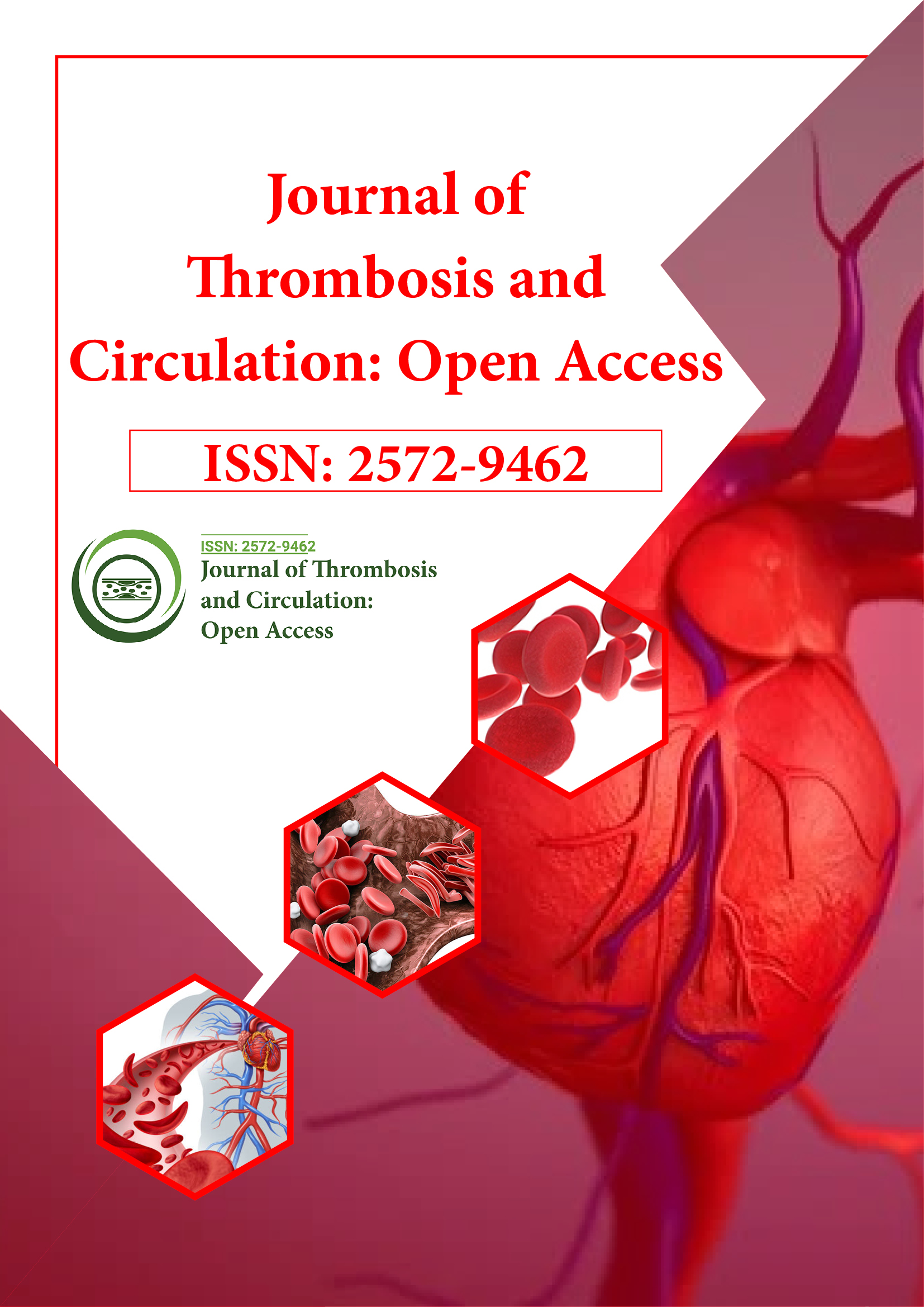Indexed In
- RefSeek
- Hamdard University
- EBSCO A-Z
- Publons
- Google Scholar
Useful Links
Share This Page
Journal Flyer

Open Access Journals
- Agri and Aquaculture
- Biochemistry
- Bioinformatics & Systems Biology
- Business & Management
- Chemistry
- Clinical Sciences
- Engineering
- Food & Nutrition
- General Science
- Genetics & Molecular Biology
- Immunology & Microbiology
- Medical Sciences
- Neuroscience & Psychology
- Nursing & Health Care
- Pharmaceutical Sciences
Perspective - (2023) Volume 9, Issue 4
Reducing the Risk of Portal Vein Thrombosis in Sleeve Gastrectomy: Genetic Considerations
Hirsch Carlion*Received: 19-Jun-2023, Manuscript No. JTCOA-23-22268; Editor assigned: 21-Jun-2023, Pre QC No. JTCOA-23-22268 (PQ); Reviewed: 06-Jul-2023, QC No. JTCOA-23-22268; Revised: 13-Jul-2023, Manuscript No. JTCOA-23-22268 (R); Published: 21-Jul-2023, DOI: 10.35248/2572-9462.23.9.233
Description
Portal Vein Thrombosis (PVT) is a rare but serious condition characterized by the formation of blood clots within the portal vein, which is responsible for carrying blood from the gastrointestinal tract to the liver. While PVT can occur due to various factors, including liver cirrhosis, malignancy, and infections, it can also be associated with certain genetic mutations. One such mutation is the prothrombin gene mutation, which has been linked to an increased risk of thrombosis. Sleeve gastrectomy is a surgical procedure that involves the removal of a large portion of the stomach, leaving behind a small sleeve-shaped pouch. This procedure has gained popularity in recent years as an effective treatment for obesity and related health conditions. While it offers numerous benefits, such as significant weight loss and improvement in metabolic parameters, there are also potential risks and complications associated with the surgery. One of the lesserknown complications of sleeve gastrectomy is the development of Venous Thromboembolism (VTE), which includes Deep Vein Thrombosis (DVT) and Pulmonary Embolism (PE). VTE occurs when blood clots form in the deep veins, usually in the legs, and can then travel to the lungs, causing a potentially lifethreatening situation. The incidence of VTE following bariatric surgery has been reported to be relatively low but is still a matter of concern.
In recent years, studies have suggested a potential association between sleeve gastrectomy and portal vein thrombosis. The portal vein is a major blood vessel that carries nutrient-rich blood from the digestive system to the liver. The development of blood clots within this vein can lead to serious complications, including liver damage and portal hypertension. Furthermore, certain genetic mutations, such as the prothrombin gene mutation, have been identified as additional risk factors for thrombosis. The prothrombin gene mutation, also known as factor II mutation, involves a change in the gene responsible for producing prothrombin, a key protein involved in the clotting process. This mutation can lead to an increased production of prothrombin, making individuals more prone to clot formation. When sleeve gastrectomy is performed on individuals carrying the prothrombin gene mutation, the risk of developing portal vein thrombosis may be further elevated. The combination of obesity, the surgical alteration of the gastrointestinal tract, and the underlying genetic predisposition to clotting can create a perfect storm for thrombotic events. To manage this potential risk, it is significant for healthcare providers to thoroughly assess patients prior to sleeve gastrectomy, including a detailed medical history and genetic screening for prothrombin gene mutation and other thrombophilic disorders. Identifying patients who are at a higher risk can help implement preventive measures to reduce the likelihood of thrombotic events.
Preventive strategies may include the administration of anticoagulant medications before and after surgery, early mobilization, leg exercises, and the use of compression stockings. Close monitoring during the postoperative period is also essential to detect any signs or symptoms of portal vein thrombosis promptly. Additionally, patient education plays a vital role in preventing complications associated with thrombosis. Individuals undergoing sleeve gastrectomy should be informed about the potential risks and symptoms of thrombotic events, such as abdominal pain, swelling, and gastrointestinal bleeding, and should be encouraged to seek medical attention immediately if such symptoms arise. Sleeve gastrectomy is an effective weight loss procedure, it is important to recognize the potential risks and complications associated with it. Portal vein thrombosis, particularly in individuals carrying the prothrombin gene mutation, is a serious concern that necessitates thorough preoperative evaluation and appropriate preventive measures. By identifying high-risk patients and implementing preventive strategies, healthcare providers can minimize the incidence and severity of portal vein thrombosis following sleeve gastrectomy, ensuring better outcomes for patients undergoing this procedure.
Citation: Carlion H (2023) Reducing the Risk of Portal Vein Thrombosis in Sleeve Gastrectomy: Genetic Considerations. J Thrombo Cir.9:233.
Copyright: © 2023 Carlion H. This is an open-access article distributed under the terms of the Creative Commons Attribution License, which permits unrestricted use, distribution, and reproduction in any medium, provided the original author and source are credited.
